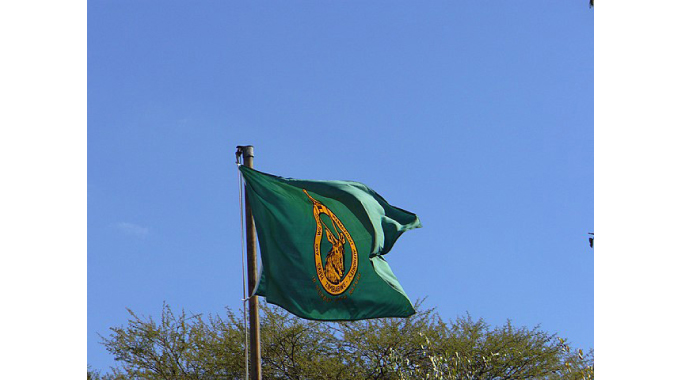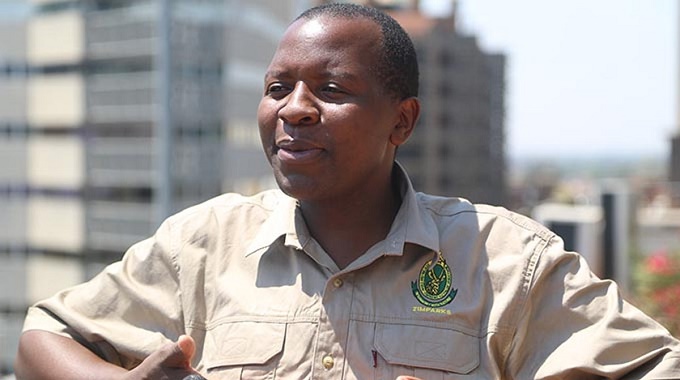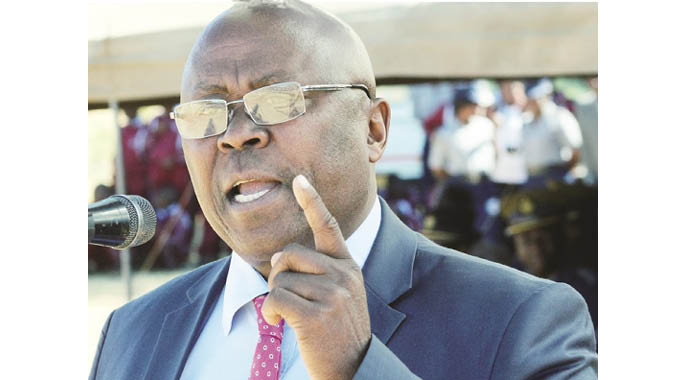Government should be commended for inclusion of minority groups

Yvonne Ncube, Features Correspondent
The Second Republic should be commended for its efforts to empower underrepresented groups in Zimbabwe.
This is in line with its aim to uplift all formerly marginalised communities in the country and subsequently, make Zimbabwe a home for everyone.
The Government, in line with National Development Strategy 1 (NDS-1), which is informed by Vision 2030, has said no citizen will be left behind in its developmental agenda and this can be seen coming to life through the inclusion of the San community in various spheres of life.
Through inclusion and the promotion of economic possibilities for its members, President Mnangagwa’s administration has fostered a sense of belonging among the San community, one of the country’s minority groups. The San are found on the outskirts of Bulilima District, Matabeleland South and Tsholotsho District in Matabeleland North.
The Government has taken deliberate action to ensure that the San are not left behind as the nation forges ahead towards an upper middle-income economy by 2030.
No community should be left behind in the development matrix.
In keeping with this philosophy, the Second Republic has also facilitated the recruitment of members of the San community into institutions of higher learning, improved access to the issuance of birth and identity documents, and provided other critical public services.
Prior to the intervention of the Second Republic, the San lived in their own world, separate from the rest of the country because a majority of them did not have birth certificates or identity credentials. They were unable to access many services, including health care and they couldn’t vote as they didn’t have identity documents.
During the 150th recruit correctional officers’ pass-out procession at Ntabazinduna Prison Training School, 20 youths from the San community in Tsholotsho District became the first group to graduate as Zimbabwe Prisons and Correctional Service (ZPCS) officers.
This was following a Cabinet resolution that the country’s security services should set up a quota system for the San community as part of their integration into broader society.

Zimbabwe Prisons and Correctional Services (ZPCS)
In his remarks, President Mnangagwa, who was the guest of honour at the event, said the recruitment of members of the San community into the ZPCS dovetails with the Second Republic’s thrust of creating opportunities for everyone through equal participation in Government empowerment and development programmes.
“In the spirit of leaving no one and no place behind, it is impressive that some of the graduates of this pass-out parade were drawn from the San community,” he said.
“This dovetails with my administration’s thrust to ensure equal participation by all citizens in the Government’s various broad-based empowerment and development programmes.”
Government has promised to create schools and other key social infrastructure in order to champion equal involvement of all Zimbabweans in national development through its broad-based empowerment programs.
To improve access to education within the San community, efforts are being made to raise money for the construction of a primary and secondary school.
This was revealed by Information, Publicity and Broadcasting Services Minister Monica Mutsvangwa in a post-Cabinet briefing recently.
“The Ministry of Primary and Secondary Education has since met with the Tsholotsho Rural District Council to identify possible sites on which to build primary and secondary schools,” she said.
Most San were in the past unable to enrol in school, which prevented them from finding formal employment.

ZimParks
Last year, President Mnangagwa sent a team of ministers to meet the San people to hear their concerns and how they wanted them to be resolved.
Shortly after that, officials were deployed to Tsholotsho to issue birth certificates and other identity documents where more than 5 000 people benefitted.
The Zimbabwe Parks and Wildlife Management Authority (Zimparks), in accordance with the Cabinet decision, has hired 10 members of the San community to be part of the rangers battling poaching in an effort to uplift and integrate San community members into society.
“We’re a Government department, so everything that we do fits into the 100-day cycle of the Government as was announced recently. We have a lot of initiatives that we’re doing in Tsholotsho as part of the programmes to incorporate the San people into mainstream society. It’s part of our corporate social responsibility,” said Zimparks spokesperson, Mr Tinashe Farawo.

Mr Tinashe Farawo
He said the San community lives close to the Hwange National Park and have fallen victim to human-animal conflict hence there is a need to capacitate them so that they benefit from resources within their communities.
As part of its ongoing outreach to marginalised minority populations through community-based empowerment projects, First Lady Amai Auxilia Mnangagwa’s Angel of Hope Foundation gave sorghum seed to the Twai Twai San community in Makulela, Bulilima District,
In an interview, Tsorotso San Development Trust director, Mr Davy Ndlovu, whose organisation strives to support development among Zimbabwe’s San people, applauded the Government for generating chances through equal participation in empowerment and development programs.
“Of late the Government has done a lot to empower the San community. A number of ministers have come to visit the San to hear their stories rather than being told that the San are suffering. They took the initiative to come and see for themselves. Minister July Moyo came to visit recently and we had a community dialogue where a number of things were discussed,” said Mr Ndlovu.
“Around this discussion, we highlighted the lack of leadership representation. The San are the only tribe in Zimbabwe that doesn’t have a chief so these issues were raised. We’ve started the process of initiating a chief amongst the San and a chief designate is now available by the name of Christopher Dube. We’re now waiting for the full installation of the chief. We hope that this will assist the San community to air their views through the chief so that he takes these concerns to the highest Government offices,” said Mr Ndlovu.
He said efforts were being made to teach the language in schools.
“Another thing that the Government has done was to bring down the then Minister of Primary and Secondary Education Cain Mathema. We had a dialogue with him around the issues of language. We want the language taught in schools, so they offered to assist to develop the language to an extent where it is going to be taught in schools. After that, the secretary in the ministry got in touch and told us that they were mobilising resources,” said Mr Ndlovu.

Minister Cain Mathema
“The San were asked to research and write down some literature. This is another positive thing that the Government has done. The San have been complaining that there’s no one among the San who is gainfully employed. After listening to these concerns, the 34th Cabinet briefing compelled all Government departments to hire the San. The correctional services, the army, the police, and Zimparks have since hired some of the San members.”
Mr Ndlovu said 20 young San, both male and female, went through rigorous training and are now gainfully employed as prison wardens.
“We went to witness the pass-out parade and the parents were so happy to see their children shaking the hands of the President for the first time in the history of the San. We have 10 youths who are with the National Parks,” he said.
Mr Ndlovu said the San were impressed by how this happened in just a short space of time and are optimistic that more is yet to be done.
“All this happened in a short space of time. This is positive and shows that more can be done. We hope that more Government departments will take up the initiative so that we see more San being employed. Last month, the Deputy Minister in the Environment Ministry [Barbara Rwodzi] came and told the San community that the Government now wants to issue hunting permits to the San so that they have full permission to go and hunt certain animals at the national parks.

Deputy Minister of Environment, Climate, Tourism and Hospitality industry Barbara Rwodzi
“This is something that the San have been crying for, for years so we’re very optimistic that this is going to happen soon. Throughout history, the San have been hunters and gatherers and they used to eat meat as one of the staple diets. The community is very happy that these developments have taken place. We’re optimistic that more is yet to happen,” said Mr Ndlovu.











Comments